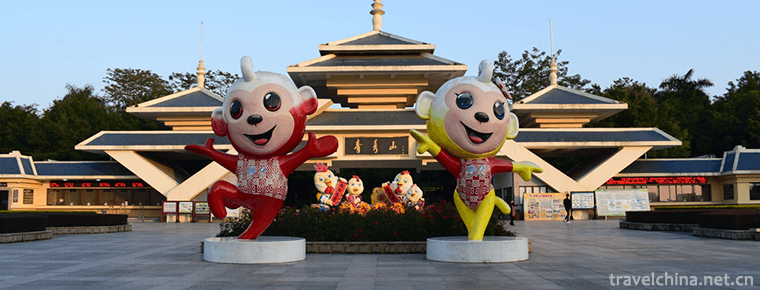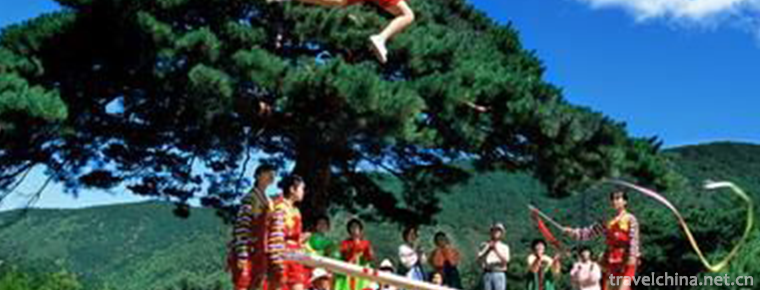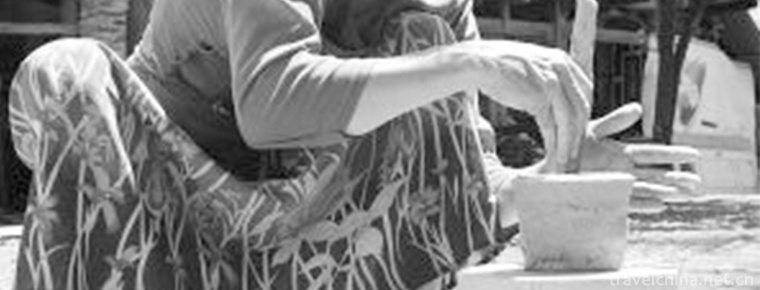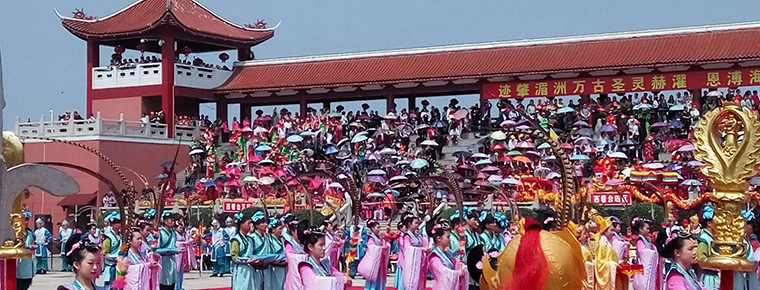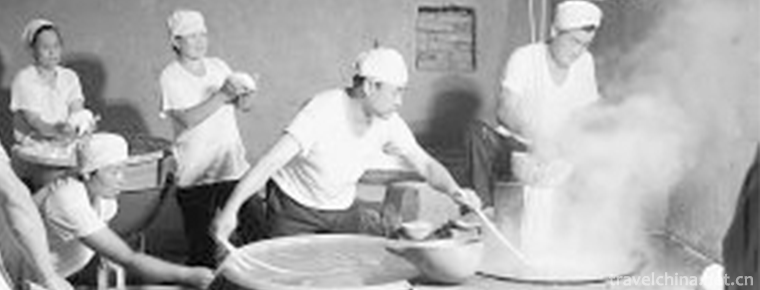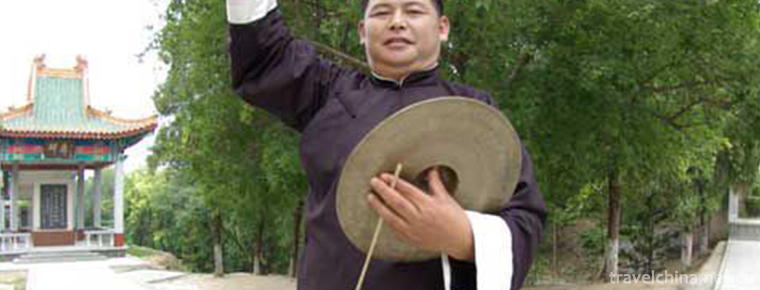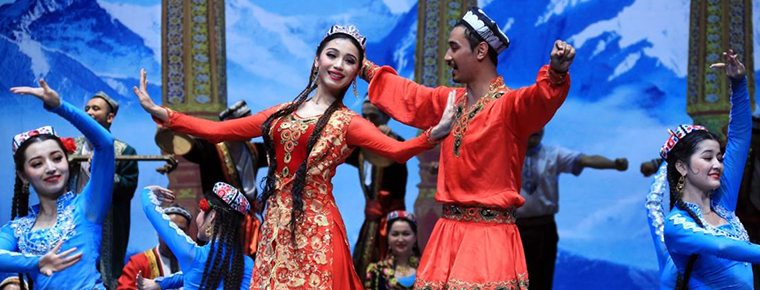Shuizu Duanwu Jie
Shuizu Duanwu Jie
Duanjie is the most important festival of aquarium in China. It has been listed in the first batch of national intangible cultural heritage in January 2006.
The aquarium duanjie is called "borrowing duanjie" in the language of water. "Duan" means "the first year of life" or "New Year", "borrow" means "eat". Therefore, Duanjie can also be literally translated as "eating New Year", which means "celebrating New Year". Because the date of this year's festival of Shui nationality is based on the water calendar, which makes September the first year of the year. The first year of the year is the Spring Festival. The Duanjie Festival is set on the ninth day of September, commonly known as the "Water Year". For the convenience of visiting each other, the scattered Yi people also celebrate the Duanjie Festival according to the time and place stipulated by the region. Duanfestival (Water Year) is a traditional festival for the Shui people to say goodbye to the old and welcome the new, to worship their ancestors, to celebrate the harvest and to wish the new year a happy and happy one. On the eve of the festival, the Shui people pour new rice, brew new wine, sew new clothes, prepare various kinds of food and fruit for ancestors and guests. On New Year's Eve, people hang bronze drums or barrel drums in the courtyard, beating them heartily to express the old and welcome the new. In the early morning of the first day of junior high school, each family set up vegetarian tables, offering fish (aquarium regards fish as vegetable dish), New Glutinous rice, new rice wine, tofu, dried bamboo shoots, pumpkin, peanuts, fruits, sugar, vegetables and so on. Especially steamed or stewed "fish pot leek" and "baked (roasted) fish" are indispensable sacrifices.
On May 20, 2006, the Shui Duan Festival declared by Sandu Shui Autonomous County of Guizhou Province was approved by the State Council to be included in the first batch of national intangible cultural heritage list (category: folklore; number: _-20) .
The Duanjie of Shui nationality is equivalent to the Spring Festival of Han nationality.
Historical Origin
The Duanfestival of the Shui Nationality is calculated from the Shui Shui calendar. It lasts 49 days from beginning to end. It is the longest time-delay festival in the world. It is also called "Gua Festival". It is also called "borrowing melon" or "borrowing end" in the water language. Equivalent to the Han Spring Festival.
The water calendar divides a year into 12 months and four seasons. However, September is the first year of the lunar calendar. At the end of August of the lunar calendar, the water calendar is kept in twelve places. The water calendar lasts from late December to February of the following year. Every Hai Day, according to the traditional festival in batches, it takes seven batches (9 batches in ancient times) to finish the festival. Duanjie retains the customs of Qinggushu, an ancient clan tribe of the Shui nationality, for celebrating the New Year.
In the aquarium, there is a traditional distinction of "no end but no end, no end" and the order of festivals in different regions can not be reversed or confused. About this custom, the more consistent legend is that Gongdeng, the ancestor of the ancient Shui people, had two sons. His brother was separated into the upper inner and outer areas, and his brother was separated into the lower Jiuqian areas. It was originally agreed that after harvest, they would gather at the grandfather's place to celebrate. Afterwards, I felt that the distance was long and inconvenient, so I decided that my brother would celebrate Duanfestival and my brother would celebrate Mao Festival. Nowadays, the aquariums in all parts of the country basically celebrate the same festival with the same clan and surname.
Folk Customs
The Shui nationality has its own calendar. The first day of September is the beginning of the year and the last month of August is the end of the year. They have unique national customs and festivals, Duanfestival - the longest festival in the world. Equivalent to the Spring Festival of Han compatriots. Every August, the first "Hai" day of the lunar calendar begins and ends in October. It lasts for 49 days from beginning to end, which can be said to be the longest festival in the world. Near the end festival, the water village is full of festival celebrations everywhere. On New Year's Eve, every household cleans up, washes clothes with milk, kills pigs and ducks, grinds tofu, catches fish in the open pond, and so on. It is busy and not lively. On New Year's Eve, every household not only avoids eating meat and vegetarianism, but also carries out solemn and mysterious ancestor worship ceremony.
After lunch the next day, men, women and children dressed in festive attire invited relatives and friends to climb Duanpo, watch Duanpo horse racing and play dragon and lion dancing. For a time, there was a sea of people on Duanpo. Before the horse racing, a simple ceremony was to be held, with the prestigious elders in Zhai Zhongde as the main worshiper. After the ceremony, the horse race was announced. At this time, the two sides of the road were crowded with people watching. Ten hundred fast horses jumped out, shouting and cheering. After the horse race, relatives and friends were invited to go home to entertain guests with fish and leek, a special dish of the aquarium people. That night, families drank all night, villages and villages danced, and bronze drums were heard everywhere.
Inheritance Significance
Duanjie is the most solemn and grandest folk festival celebrated by the aquarium compatriots. Duanjie has the educational value of maintaining and enhancing the identity of the aquarium people. Duanjie has profound ethical and moral education value for the aquarium people. Duanjie has the educational value of knowledge and wisdom. Duanjie also has the value of aesthetic education and harmonious education. It is necessary for relevant parties to vigorously tap and utilize these educational values of Duanjie.
The Shui people's calendar and Duanjie accurately interpret the meaning of the Chinese characters "Nian" and "Gushuye". The celebration held by Gushu is called New Year's Day in ancient times. Analyzing the ancient Shui nationality character "Nian", rice culture is permeated in the meantime. The ups and downs bend and cross-draw shows the cutting tools, picking knives and sickles; the middle vertical indicates the interval between two harvesting periods, refers to a period of rice growth, that is, one year; the middle horizontal indicates that the average year is the midpoint of two seasons. The distinctive feature of the ancient water calendar is to divide a year into winter and summer. At the end of December, it is the autumn harvest time of Gushu. Duanfestival has also become a festival of celebrating the harvest, offering sacrifices to ancestors and gathering relatives and friends.
Major Legends
According to legend, in ancient times, the Shui people carried bronze drums, hoes, ploughs and rakes to flee in groups, but to Guangdong and Guangxi can not settle down, moving anywhere is not satisfactory. While everyone was worrying, a group of noxious magic came from the sky (noxious magic is a bird name in the water language, it is estimated to be phoenix). Everyone thought that Nostalgia must have come to show you the way, so they followed it. Noxianshu flew up along the river, and the aquarium moved up the river with its shadow. Noxianshu disappeared at the mouth of the cha river. Where is the best way to go? Here people see a giant dragon swimming in a river on the left. People say that the dragon is a lucky animal. They move up to the valley on the left. The troop went away, and some people who fell behind came to Chahekou. When they saw that the two rivers were all along Shanqingba Ziping, they moved up along the valley on the right.
The troop of people and horses, do not know how long to walk, after daring (in Nandan area of Guangxi), came to Sandong area. When people saw that there were no people living here and there were good dams, they planned to live here. Afraid of the small size of the site, so many people can not live, and then head to the square three or four hundred miles to see. Seeing all these places are good, we separated and settled down in this area. When people have a foothold, they always miss their hometown, so they come to Sandong Gongdeng (grandfather) to discuss the future life. It was agreed that at the end of the calendar three years later, they would all be reunited at Sandong.
Three years later, people came to Sandong to reunite with all kinds of harvest fruits. Suddenly, a group of people and horses dressed in strange clothes surrounded them with darts, bows and arrows, machetes and spears. They said that this area was developed by their ancestors. They also said that gold and silver treasures were buried everywhere and they were forced to move all the aquariums. The aquarium man said, then you dig out the buried treasure to prove it. Where can the group dig out, so the two sides came to quarrel over, and finally started.
Isn't this the day when the Aquarians get together? There were many people and cooked meals, so they had a wheel fight with the team. As a result, they saved the land, but many people died themselves. Everyone buried the dead overnight, offered sacrifices to stewed fish with leek, and let their souls taste the delicacies of their hometown, so that they could live in peace in the new territory.
That night, Gongdeng had a dream. He dreamed that an old man with white hair and Beard said to him, "Some people are not satisfied that your aquarium has opened up this land. They can't win. They're going to poison you with a plague after breakfast tomorrow. After breakfast, you all climb up the hillside of the Nuguduan and come back in the evening. "The next day, after breakfast, people helped the old and the young climb up the hillside of the group of angry aunts.
Up the slope, the adults were in good mood, the children were crying or making noises, and the horses were weak. So we all raced together on the slope, which is probably the origin of the Duanjie horse race. When the sun went down, everyone went back to the dam and saw that all the pigs, sheep, chickens and ducks that had not been pulled away had died of plague.
Since then, at the end of each calendar year, people have brought fruits from all sides to three holes for reunion. In memory of the dead, sacrifices must be offered the first night and the second morning. A family put up a large sacrifice, everyone was happy, you pulled me to dinner, I pulled you to drink. There are so many people that they can't turn around. They have to taste it from the beginning to the end. Adults eat wine, children eat a glutinous rice to be full. Adults, in order not to spoil the children's interest, distributed to them all kinds of sacrificial sugar chips, melons and fruits, and hung up bronze drums and wooden drums for playing. After breakfast, afraid of another plague, he went up the angry hill to race horses. Over time, these activities became the custom of the Duanfestival of the Shui nationality.
This is not the end of the matter, because it is inconvenient to carry sacrifices to the three holes every year, so some people suggested that it is not good to gather in one place every year, we should take turns to see everywhere, and some people proposed to separate the Duanjie. Finally, everyone agreed to come to the end of the festival in stages and batches. Gongdeng caught a basket of live carp in the water and asked each clan to send a person to catch the fish. Who caught the heaviest fish and who celebrated the festival first. The eldest brother who lives in the inner and outer jacket area catches the heaviest fish. He has the first batch. The weight of the fish caught below is not the same, so he will arrange them according to the weight of the fish for the holidays. In this way, Layou and Shuidong had the second batch, Shuidou, Star and Dragon had the third batch, Sandong and Zhonghe had the fourth batch of Duanjie.
Choose the date in order. Gongdeng said, "We can find a nest here, all of our ancestors'Hongfu. The day when our ancestors passed away was Dog Farm Day (Picking Day), Pig Farm Day (Hai Day) was buried, and then we passed through Pig Farm Day, pushing down one round after another. "Just after the drainage, the Shuipan family came. They suffered from the drought. Everyone sympathized with them. Zhai Lao in Shuiqi said jokingly, "We can't help Shuipan when they are hit by the disaster. If they want to go too far, we will sell them Duanfestival if they bring twelve white buffaloes. "The Shuipan family listened and quietly sent people back to collect money and bought twelve buffaloes. Shuiqi Zhai sells Duanjie to Shuipan when he sees the old man and tells the truth. But Shuipan, who spent the Duanjie Festival with water and gas, thought it was unlucky to disagree with Shuipan. Therefore, Gongdeng chose the noon day when his ancestor passed away to give water to Pan Duan. In this way, during the third and fourth batches of end sections, the end sections of Shuipan were added, and the end sections became five batches.
Later, due to the continuous reproduction and migration of the Shui people, Duanjie increased to eight batches. In this way, every year from December to February of the New Year, the people of the aquarium come and go to visit relatives to celebrate the Duanfestival. Duanjie has been handed down from generation to generation.
Major activities
Pre-Festival Activities
Before the end of the festival, cleaning and cleaning equipment is the primary task. In the past, there was no detergent, dishes and chopsticks were washed with wood ash, tables and benches were scrubbed with straw, so as to thoroughly remove greasy dirt, and halls were cleaned and bright halls were not allowed to leave any trace. The cleaning of shrines should be very careful. Hard objects should not be touched or damaged to avoid offending the gods. At the end of the festival, broken dishes and broken chopsticks can not be served on the table, and the tables and stools should be scrubbed completely, especially for ancestors'tables, stools, bowls and chopsticks. Shenri began to clean the house, clean dishes, tables and stools, catch fish all day, slaughter pigs and cattle in the morning, and open the case in the afternoon.
Fish-wrapped leek is the most distinctive dish in the aquarium Duanjie Festival. Fish-wrapped leek is the most precious ancestor-worshiping dish for every household during the Duanjie Festival. It is said that the ancestors of the aquarium migrated southward from the Lishui River basin to avoid disasters. They climbed mountains and waded rivers. They were hungry and fished. They got fish sauce to fill their hunger and hike with leek. Therefore, the aquarium offered sacrifices to their ancestors with fish and leek on Duanfestival in memory of their ancestors.
The production of fish-wrapped leek is a very delicate work, especially for broken fish. A three-inch-long knife should have a sharp tip. The left index finger and middle finger should hold the fish's cheek tightly. The knife should be cut straight from the center of the head. Then the left hand should turn over and tightly hold the fish's head. The sharp knife should break the fish's back directly from the fish's head to the fish's tail, take out the debris in the fish's belly, and spread the fish neatly on the case board. When the fish are all broken, open along the back of the fish, and spread the fresh red and spicy leek with ginger and garlic, pepper and salt powder into the abdomen of the fish. Then cover the leek and Cantonese food on the spicy leek. Then close the back of the fish, wrap the leek, wrap the leek with glutinous rice straw stem carefully, and then apply the red and spicy leek on the fish. As the name implies, it is called "fish wrapped leek", also known as "Duanjie fish".
There are three main ways to cook fish-wrapped leek for "Duan". The first way is to cook fish. After the fish is wrapped, put it in a big pot, then put some leek, Cantonese vegetable, ginger, some salt and spicy grains, with appropriate amount of water, with the lid of the pot buckled on top, and then set the fire to cook. The second is steamed fish. Steamers are placed on the shelves of large pots, and then steamers are installed on the steamers. The steamers are neatly packed with bundled fish. The third is "braised" fish, which is the most exquisite cooking method. Set up a pottery urn, lay some leek and Cantonese dishes on the bottom of the urn, sprinkle some prepared spicy grains on it, and then tidy the fish in turn.
Put it in the urn. For each layer of fish, sprinkle some home-brewed rice wine, and then spread a thin layer of leek, Cantonese food and spicy grains on top of the fish until the fish is filled. After filling the fish, cover the mouth of the urn with a board or bamboo board. Then put a big iron pot on the big stove and a wooden frame in the pot. Place the pottery urn filled with fish on the wooden frame. Fill the pot with clean water. Put some condiments and some cooking wine into the pot. Then a large hollow wooden barrel is placed in the iron pot to cover the pot and pottery urn, and then a wooden or bamboo lid is used to cover the mouth of the barrel, so that it can be cooked.
The cooking time of fish-wrapped leek starts at 7 p.m. on the picking day, and it takes about 12 hours to finish the cooking at about 7 a.m. on the next day (that is, Hai Day). Fire should be appropriate in size, not too fast or too small. If the fire is too strong, the cooking will be uneven; if the fire is too small, the temperature will not be enough and the taste will not be right. Generally, people who pay attention to it adopt the method of "baking".
Sacrificial activities
Duanfestival is a traditional festival for the Shui people to say goodbye to the old and welcome the new, to worship their ancestors, to celebrate the harvest and to wish a happy new year. On the evening of the picking day, the master's house set up an eight immortal table in the middle of the hall. There were seven bowls, seven pairs of chopsticks and seven cups (or nine or five, depending on the number of family members, but only the singular number) on the table. Rice wine was poured into the glass. On the side near the shrine, set up a plate of fish and leek cooked in a small pot, a plate of glutinous rice, several dishes of fruit, eight cups of tea, and an incense stove on the shrine to light incense. Eight chairs were placed around the table to wait for the spirits of the ancestors to come home and take their seats and enjoy the worship of their descendants. For the "end" of all the layout of the table, cooking fish kitchen opened fire, and then the whole family gathered in the dining hall to eat reunion dinner, reunion dinner before only vegetarian food, but now on the evening of Haiti relatives and friends come and go, can eat meat, but meat oil must not be contaminated with the table for ancestors. After the reunion dinner, three groups, five groups of young men, women and children in the village went to each household to watch the festival. They hung bronze drums and wooden drums and struck until late at night.
At night, the male elders lead their children to enjoy the offerings on behalf of their ancestors. Then they take out the cooking fish and leek from the steamed urn and take them to the table. They refill the wine and tea to continue offering sacrifices to their ancestors. Then, the female elders set up a table at the stairway entrance to offer sacrifices to the ghosts of the past, and then led the children in the family to enjoy the sacrifices. At night, the hall is bright, adults cook fish in the kitchen, and children serve food in the hall, which is called "Suduan" in Chinese. In the morning of the next day (that is, the morning of Hail Day), the food was offered on the simple table for the elderly at home, then fish and leek were taken from the steamed urn and placed on a rectangular wooden plate, then a plate of newly steamed glutinous rice was put on the table, and wine and tea were refilled. The fish-wrapped leek on the ancestral table is bright red, like carp and grass carp leaping out of the hot and red pool, which is very attractive; the hot and fragrant glutinous rice is full of seven colors, while the wine is drunk before it smells. The Hall presents a warm Festival atmosphere, but also shows the enthusiasm of the aquarium people for traditional festivals.
After daybreak, the elders or dignitaries of the clan notified the whole clan to enjoy the sacrifices, and then extended to each household in turn, tasting the fish and leek of each family and enjoying the Duanfestival together, which is called "Duanduan" in the water language. After the end of the "dungduan", take the fish that ate the residue and put the fish and leek in the wooden dish again to wait for visitors. Duanjiexu day (before the 1st day of Hai Dynasty, equivalent to the 30th evening of the Chinese New Year) has reunion dinner. On the 1st day of Hai Dynasty (equivalent to the 1st day of the Chinese New Year), meat and vegetarianism are taboo in the morning. In the past, before the end of the market in Marpo, the guests arrived and could not eat meat. They had to be served with fish and leek. After Ma Po's end, meat, vegetables and porridge can be eaten only after the ancestral ceremony is completed.
The aquarium has a saying that "no wine, no etiquette, no fish, no end". Every year, every family must have fish to offer sacrifices to their ancestors. Generally, steamed fish is about 350 jin. The packaged fish discharged on the board in the middle of the hall house becomes a unique scenery. Alcohol should be converted to alcohol.
The sacrifice of ancestors takes place on New Year's Eve and in the early morning of the New Year. Two meals on New Year's Eve and New Year's Day are not vegetarian, but fish is not banned. Fish sacrificed to ancestors by the aquarium is called "fish pot leek", which is stewed or steamed after filling the belly of fish with leek and chestnuts, and can be eaten after sacrificing ancestors.
Sports activities
Traditional celebrations include family ancestor worship, Duanpo horse racing, literary and artistic performances, sports and horsetail embroidery competitions, bronze drum and wooden drum performances, bullfighting dance, bronze drum inspiration, Lusheng dance, antiphonal songs, etc.
On the noon of Haiti, a simple ceremony will be held before horse racing. The village elders should set up a table on the Duanpo, put various sacrifices on it, and solemnly offer sacrifices to the ancestors who opened the Duanpo.
After the ceremony, Zhai Lao Yue took a walk on the runway before announcing the start of the race, and then ten thousand horses galloped, you chased me. The form of horse racing of Shui nationality is very unique. It is called "crowding horse". When the commander gives a command, the rider whips the horse, rushes into each other in the valley, squeezes out the valley and rushes to the top of the slope in the struggle, the winner is the one who goes to the top of the far slope first.
At the end of the festival, the most lively one is the "end" Po racing. People hang large safflower tied with silk and satin on the horse's head and lead it to the slope. Hundreds of horses gather on the slope to compete fiercely and raise their hooves and whips. Every household raises horses all year round in order to have a strong wind on the end slope.
There are no specific judges on Ma Po. Everything is commented by the audience, and people have a good idea of it. Whose horse runs the best and fastest, people and horses, even the whole stockade and even relatives and friends are also glorified. If any horse wins the championship in succession and shows off all the time, don't mention more glory! There are fixed places for horse racing activities. People call them Duanpo or Nianpo. After eating New Year's wine, people come here in groups from villages. Duanpo is crowded with people. Young people rush to Duanpo not only to watch horse racing, but also to see the grand party as a good opportunity for pornographic couples.
During the Duanfestival, the sound of bronze drums and wooden drums rose and fell one after another. Beautiful singing and happy laughter echoed from morning to night in the foot-hanging building of the Shui family. The Shui people were immersed in a warm and peaceful Festival atmosphere.
Horse racing is the climax of the Duanfestival, which takes place after lunch on the 1st day of the Chinese New Year. There are fixed places for horse racing, called "Duanpo" or "Nianpo". After eating New Year's wine, people come here in groups from villages, and Duanpo is crowded with people. Young people rush to Duanpo not only to watch horse racing, but also to see the grand party as a good opportunity for pornographic couples.
A simple sacrifice should be held before horse racing. The elders in Zhai Zhongde are to offer sacrifices to the noble elders. The elders should set up a table on the Duanpo, put various sacrifices on it, and solemnly offer sacrifices to the ancestors who opened the Duanpo. The elder stood at the table with a solemn expression, holding a glass full of wine and chanting words in his mouth. Most of them were reminiscent of their ancestors and words of good luck. They prayed to bless Duanpo's horse racing activities, which would be safe and sound in the coming year.
After the ceremony, the elder jumped on his horse and walked around the track before announcing the start of the race. The form of horse racing of Shui nationality is very unique. It is called "crowding horse". When the commander gives a command, the rider whips the horse, rushes into each other in the valley, squeezes out the valley and rushes to the top of the slope in the struggle, the winner is the one who goes to the top of the far slope first.
Duanjie is the longest and most batch festival with national characteristics. Horse racing is a unique phenomenon in the Southern National Year Festival. At the same time, Duanjie is an important cultural space for the origin, inheritance and development of many folk arts, such as aquarium bullfight dance, bronze drum dance, Lusheng dance and antiphonal songs.
Current situation of circulation
Sandu County receives a grant of 500,000 yuan for representative projects of national intangible cultural heritage, which will be used for the salvage protection and inheritance of aquarium duanjie.
Reporters learned from the Style, Radio, Television and Tourism Bureau of Sandu Aquatic Autonomous County yesterday that Sandu is the only Aquatic Autonomous County in China, where more than 60% of the Aquatic people live. The Aquatic Duanjie Festival is the most solemn annual festival for the Aquatic people.
For a long time, some ancient customs and rituals of the Shui nationality have been preserved in the Duanjie Festival of the Shui nationality. However, due to the lack of written records, they are generally presided over by Zhai Lao or Shui Shu, which brings obstacles to the inheritance and development of the Duanjie Festival. In addition, most young people in the vast Shui nationality villages go out to work, and some ancient customs and rituals of the Duanjie are facing disappearance DANGER.
It is reported that the state-level intangible cultural heritage representative project subsidy of 500,000 yuan won by the county will be used for the salvage protection and inheritance of the aquarium duanjie.

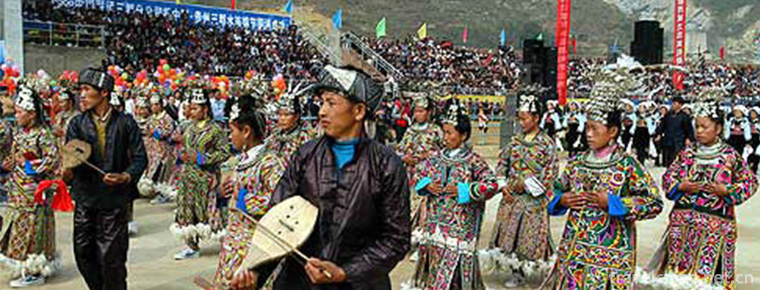
-
Slender West Lake
Slender West Lake, formerly known as Guarantee Lake, is located in the northwest suburb of Yangzhou City, Jiangsu Province.
Views: 166 Time 2018-12-06 -
mount fanjing
Fanjingshan: National AAAAA-level tourist attractions, National Nature reserves, China's top ten summer resorts, China's famous Maitreya Bodhisattva Dao.
Views: 242 Time 2018-12-12 -
Qingxiushan Mountain
Qingxiushan Scenic Area is a national AAAAA scenic spot in Nanning. Qingxiu Mountain is a key scenic spot in Nanning. In addition to protecting and restoring the original historic sites.
Views: 222 Time 2019-02-07 -
Korean Springboard and Swing
Springboards and swings are the most popular traditional folk sports for Korean women, and they have a broad mass character..
Views: 201 Time 2019-04-16 -
Dais Slow Wheel Pottery Technology
Dai Slow-wheel pottery, the primitive traditional handicraft of Yunnan, is one of the national intangible cultural heritages..
Views: 110 Time 2019-04-24 -
The Mausoleum of the Yellow Emperor
The Mausoleum of the Yellow Emperor is one of the national intangible cultural heritages, which has formed a certain scale format and sacrificial ceremonies in the long-term practice..
Views: 149 Time 2019-05-04 -
Longkou Fans Traditional Handicraft Production Techniques
In the late Ming and early Qing Dynasties, Zhaoyuan people created a new technique of making mungbean vermicelli, which was divided into three manual operation processes: powder pushing, powder leakin.
Views: 245 Time 2019-05-14 -
Laozi Shandong Province
Shandong Laozi is a traditional opera art form which spreads in Shandong Province. It evolved from the ancient "lotus flower falls". Laozi instruments are mainly cymbals (commonly known as G.
Views: 163 Time 2019-06-13 -
Machirev
Machirev is a name for a form of dance and entertainment, which refers to a large-scale self-entertainment activity with a large number of participants (the so-called participation refers to those who.
Views: 95 Time 2019-07-06 -
Sichuan Tourism University
Sichuan Tourism College is the first independent tourism undergraduate college in China. In 2018, it was approved by the Overseas Chinese Office of the State Council as the base of "Overseas Chin.
Views: 149 Time 2019-08-31 -
Collection value of Chinese embroidery
Mr. Chen, a fan of antique collection, bought a silk embroidery at Fuzhou flea market for more than 10000 yuan 19 years ago, which is worth at least 300000 yuan by 2008. This embroidery, about 1.8 meters long, has a dark red background, with butterfly.
Views: 335 Time 2020-12-12 -
Resources and environment of Leshan
By the end of 2018, the total energy consumption of Leshan City was 15.3994 million tons of standard coal, an increase of 580900 tons of standard coal over the previous year. The energy consumption of 10000 yuan GDP decreased by 4.38%..
Views: 144 Time 2020-12-17


